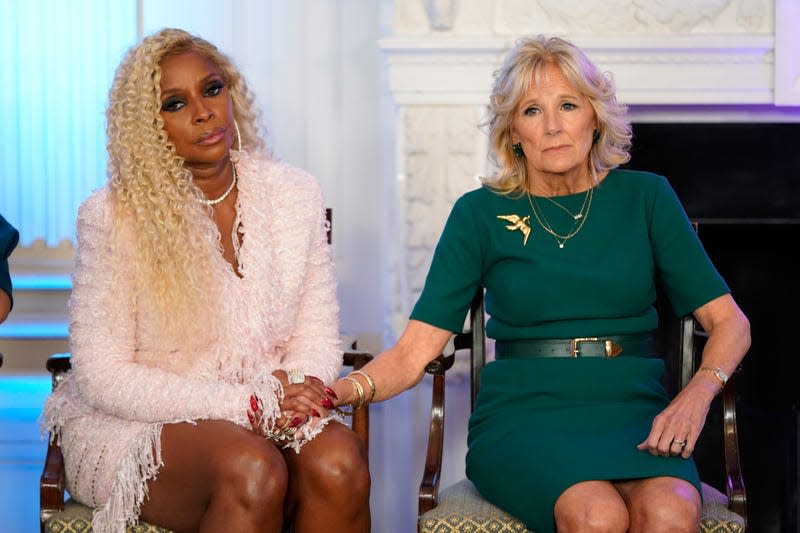Mary J. Blige Opens Up About Losing Family Members to Cancer at White House Event

- Oops!Something went wrong.Please try again later.
- Oops!Something went wrong.Please try again later.
In an emotionally charged address at the White House, Mary J. Blige spoke out about the importance of getting cancer screenings. The singer teamed up with first-lady Jill Biden, who is kicking off a series of roundtables with the American Cancer Society on Breast and Cervical Cancer.
“I’m here today as a Black woman who is passionate about using my platform to encourage other women to prioritize their health. Namely, their annual well woman’s visits, mammograms, paps, plus HPV tests,” said Blige.
Read more
During her speech, Blige opened up about dealing with loss in her own family.
“I lost aunts, not an aunt, but several family members to breast cancer,” she said. “Grandmother to cervical cancer...and it just keeps going on and on.”
Blige says that dealing with those losses pushed her to become an advocate for getting tested. In addition to speaking at the round table, she’s also paired up with the Black Women’s Health Imperative to raise awareness about breast cancer screenings.
“I’m convinced that if all of my aunts, my godmother, my grandparents, had the opportunity to see a campaign like the ones on which I partner with the Black Women’s Health Imperative that directed them to go for information, they would have a different outcome today,” she said.
The health outcomes for Black women diagnosed with breast cancer are significantly more dire than for other racial and ethnic groups in the United States. Black women have a 31 percent breast cancer mortality rate, according to the Breast Cancer Prevention Partners, which is higher than any other racial or ethnic group. And Black women diagnosed with breast cancer have a 42 percent higher mortality rate than white women, according to the same report.
While getting regular screenings is important, Blige also made sure to talk about the larger issues that contribute to Black women having worse outcomes.
“Black women are more likely to be screened at lower resource facilities,” she said. “And also experience longer intervals between detection, diagnosis and treatment.”
More from The Root
Sign up for The Root's Newsletter. For the latest news, Facebook, Twitter and Instagram.

